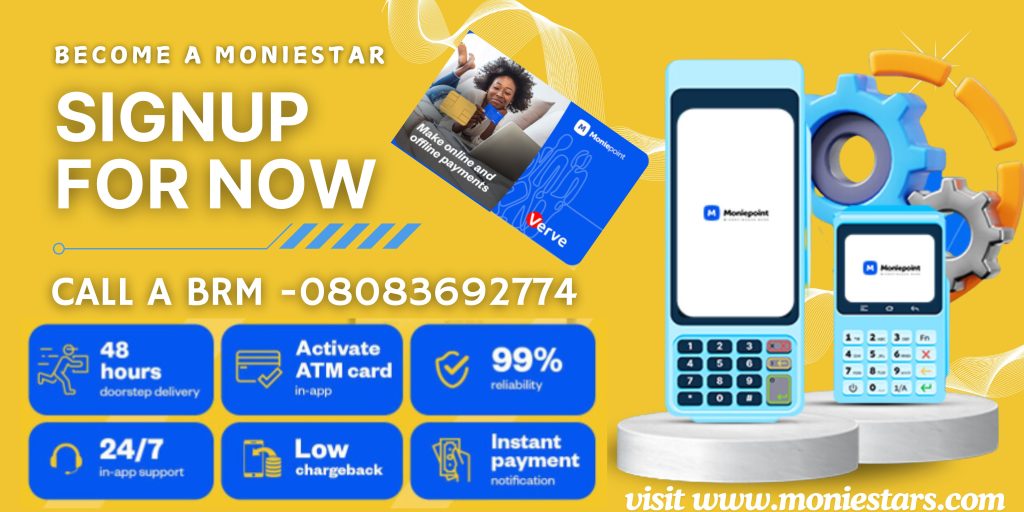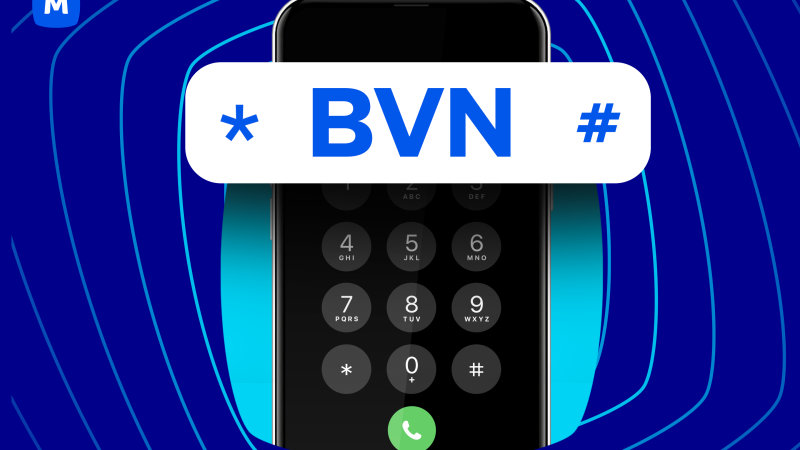Effective Strategies to Secure Funding for Your Business

Every successful business begins with a compelling idea—a solution designed to address specific customer needs. Whether operating as a brick-and-mortar establishment or an online enterprise, the journey of turning that idea into a thriving business often hinges on one critical factor: funding.
For many small businesses, particularly in developing regions like Nigeria, accessing the capital needed to grow and sustain operations is a significant challenge. The International Finance Corporation (IFC) estimates that about 40% of micro, small, and medium enterprises (MSMEs) in such regions face an annual funding gap of $5.2 trillion.
If you’re looking for actionable ways to secure funds for your business—be it through personal resources, loans, or alternative financing options—this guide is for you.
Identifying Your Business Funding Needs
Before seeking funding, it’s crucial to pinpoint your financial requirements. Are you at the startup stage or preparing for expansion? Clarify the purpose of the funds and create a list separating immediate needs from those that can wait. This approach will help you manage debt wisely and set realistic expectations.
Conduct a cash flow analysis to determine how much money you need to reach your next business milestone. Typical expenses to consider include:
- Payroll: Decide how many employees you need, what to pay them, and when their contributions will begin generating profits.
- Licenses, taxes, and permits: Understand regulatory requirements and budget accordingly.
- Insurance: Protect your business and employees against unforeseen events.
- Inventory: Assess and plan for adequate stock levels.
- Marketing and web presence: Allocate funds for advertisements and website maintenance to boost visibility and revenue.
- Operational costs: For physical locations, plan for rent, equipment, and utilities. Review lease terms thoroughly to avoid surprises.
Every successful business begins with a compelling idea—a solution designed to address specific customer needs. Whether operating as a brick-and-mortar establishment or an online enterprise, the journey of turning that idea into a thriving business often hinges on one critical factor: funding.
For many small businesses, particularly in developing regions like Nigeria, accessing the capital needed to grow and sustain operations is a significant challenge. The International Finance Corporation (IFC) estimates that about 40% of micro, small, and medium enterprises (MSMEs) in such regions face an annual funding gap of $5.2 trillion.
If you’re looking for actionable ways to secure funds for your business—be it through personal resources, loans, or alternative financing options—this guide is for you.
Types of Business Funding
Business financing generally falls into two categories:
Zero-Debt Financing
This involves funding your business through personal savings or investments from others, often in exchange for equity or other incentives. This option works well for startups aiming to avoid early-stage debt.Debt Financing
This entails borrowing money with a commitment to repay it along with interest. Before taking this route, ensure you have a detailed business plan, including market research, financial projections, and revenue strategies.
Practical Funding Options for Your Business
1. Personal Savings (Bootstrapping)
This approach allows you to fund your business using your personal resources. While it minimizes the risks of incurring debt, it’s most suitable for smaller-scale ventures or early-stage operations. For businesses planning to scale, additional external funding might become necessary.
2. Friends and Family Support
Borrowing from friends and family is a popular way to fund startups. Transparency is key—clearly communicate your goals and financial plans. Treat these contributions with the same professionalism as investments from external sources. Define whether the money is a loan, an equity investment, or a gift to avoid misunderstandings later.
3. Equity Financing: Venture Capital and Angel Investors
Equity financing involves exchanging a share of your business for financial support. Angel investors are more inclined to back smaller ventures, while venture capitalists typically invest in rapidly growing companies with significant revenue potential. Ensure all agreements are clearly outlined to avoid future conflicts.
4. Business Loans
For businesses unable to secure loans from traditional banks, microfinance institutions offer a viable alternative. For instance, Moniepoint provides loans tailored to small business needs, leveraging financial data and credit assessments to facilitate access to working capital.
5. Government Grants
Government bodies, such as the Small and Medium Enterprises Development Agency of Nigeria (SMEDAN), often provide grants for business development and research. While these funds are non-repayable, the application process can be competitive and time-consuming. Be prepared with a detailed business plan and supporting documents.
6. Crowdfunding
Crowdfunding allows businesses to raise funds from a large pool of supporters. Options include:
- Equity Crowdfunding: Donors receive a share in the business.
- Rewards-Based Crowdfunding: Supporters contribute in exchange for non-monetary rewards like exclusive product access.
- Debt-Based Crowdfunding: Contributors offer loans, repaid with interest on a set schedule.
To succeed in crowdfunding, conduct market research and craft a compelling pitch that resonates with potential supporters.
Leveraging Moniepoint for Business Loans
Moniepoint simplifies the process of obtaining business loans by focusing on small enterprises’ unique financial dynamics. With flexible eligibility requirements and efficient loan processing, Moniepoint is an excellent choice for businesses needing accessible funding options.
Key Features of Moniepoint Loans
- Business loans tailored for working capital and overdrafts.
- Eligibility requires an active Moniepoint business account used consistently for at least six weeks.
- Minimal documentation: only a CAC certificate or shop rent receipt is needed in most cases.
- Quick application process with loans processed within 24–72 hours.
- Flexible loan tenures ranging from 12 to 24 weeks.
Take the Next Step
Securing funding for your business can be a challenging process, but with the right strategies and resources, it’s achievable. Whether you’re exploring personal financing, loans, or alternative funding options, understanding your financial needs and aligning them with appropriate funding sources is the key to sustainable growth.
Start today by assessing your business goals and taking advantage of opportunities like Moniepoint’s tailored financial solutions.

You Might also like
-
How to Check your Bank Verification Number
The Big Oxmox advised her not to do so, because there were thousands of bad Commas, wild Question.
-
How to Recharge Your Prepaid Meter
The Big Oxmox advised her not to do so, because there were thousands of bad Commas, wild Question.
-
The Right Bank for Your Small Business
How to Choose the Right Bank for Your Small Business

As a small business owner, Ade constantly makes choices that shape the success of his venture. From picking a prime location to driving sales and attracting the right foot traffic, every decision counts.
One critical yet often overlooked choice is selecting the right bank—one that offers the services and support needed to ensure smooth cash flow and foster growth.
If you’re a business owner like Ade wondering how to select the best bank for your small business, you’re in the right place. Let’s explore some essential tips and factors to keep in mind when deciding on a business bank account.
8 Tips for Selecting the Best Bank for Your Small Business
1. Understand Your Banking Needs
Before opening a business account, take a moment to evaluate your current situation and your future goals.
Think about what’s most important to your business: Do you need a loan? A business checking account? Robust online banking features? Having a clear sense of your needs will help you choose a bank that aligns with your growth plans.
2. Assess Customer Support
As your business grows, having a bank that provides reliable support is crucial. Evaluate their customer service by asking:
- Do they offer a dedicated relationship manager?
- Is support available 24/7?
- How quickly do they respond to inquiries?
- What are their operational hours?
You’ll want a banking partner you can rely on for guidance in areas like taxation, policies, and financial planning. Checking reviews from other business owners can give you insight into their level of service.
3. Review Service Fees
Banks charge varying fees for services such as transactions, overdrafts, and account management. Comparing these fees across banks can save you money in the long run.
For instance, if your business frequently uses ATMs or debit cards, opt for a bank with low or no fees in these areas. Common charges to watch out for include:
- Account maintenance fees
- ATM charges
- Transaction fees
- Inactivity penalties
- Card processing fees
The goal is to find a cost-effective banking solution that helps you manage expenses.
4. Look for Digital Banking Features
In today’s fast-paced world, being able to manage your business finances online is a must. Many banks now offer digital tools that let you handle transactions, monitor balances, pay employees, and settle bills—all from your mobile device.
Choose a bank with a user-friendly app and online platform that makes managing your finances convenient and seamless.
5. Prioritize Security and Fraud Protection
Security is non-negotiable when it comes to business banking. Opt for a bank that prioritizes safety with features like multi-factor authentication, real-time notifications, encryption, and biometrics. This ensures you can focus on your business with peace of mind.
6. Evaluate Incentives and Perks
A good bank should provide essential services such as business accounts, debit cards, and cash management tools. But some go the extra mile by offering perks like low-interest savings accounts, free consultations, or business dashboards.
Take the time to understand these offers and any associated costs before committing.
7. Access to Credit and Loans
Expanding your business often requires capital, so it’s important to choose a bank that provides easy access to credit. Look for a bank with a fair and transparent loan process tailored to your business needs.
Banks like Moniepoint MFB, for example, analyze the financial histories of their clients to offer credit that suits their specific requirements.
8. Convenience Matters
Managing a business is demanding, so convenience is key when choosing a bank. Whether you prefer digital banking or traditional in-branch services, ensure the bank fits your lifestyle.
If you frequently travel, pick a bank with widespread branches or online options to ensure seamless access wherever you are.
Enhance Your Business Banking with Moniepoint
Choosing the right bank can significantly impact the growth and efficiency of your business. The ideal bank should offer dependable customer service, streamlined transaction options, secure accounts, and other essential tools to keep your operations running smoothly.
At Moniepoint, we’re proud to partner with over two million businesses, providing access to credit, business accounts, secure debit cards, POS terminals, and more. Join us today to experience banking tailored to your business needs, anytime, anywhere.
Post Views: 122



